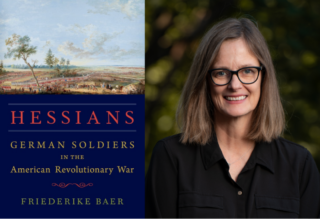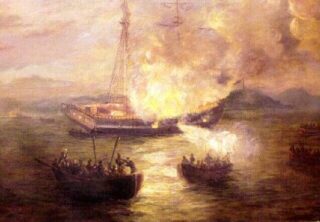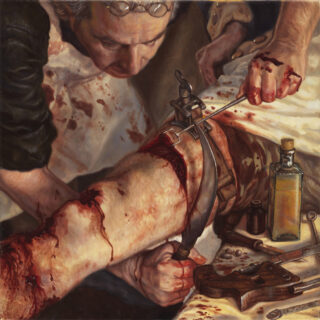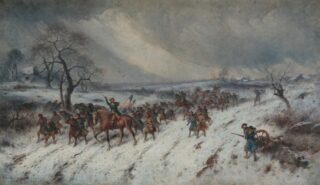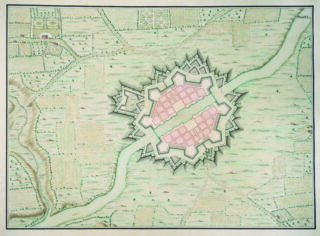Supporting scholarship and promoting popular understanding of the American Revolution is central to the work of the American Revolution Institute. The Institute welcomes distinguished scholars and authors to share their insights and discuss their latest research with the public at Anderson House through lectures, author's talks and panel discussions. The Institute also hosts a variety of other historical programs throughout the year, including our Lunch Bite object talks, battlefield tours, special Anderson House tour programs and other events. Many of the events we offer are free.

May 2022
Author’s Talk – Hessians: German Soldiers in the American Revolutionary War
Between 1776 and 1783, Great Britain hired an estimated thirty thousand German soldiers to fight in its war against the American rebels. Collectively known as Hessians, the soldiers and accompanying civilians, including hundreds of women and children, spent extended periods of time in locations as dispersed and varied as Canada, West Florida and Cuba. They penned a large body of private and official records that provide detailed accounts of the American war as well as descriptions of the built and…
Find out more »June 2022
Lecture – The Burning of His Majesty’s Schooner Gaspee: An Attack on Crown Rule Before the American Revolution
On June 9, 1772, a group of prominent Rhode Islanders rowed out to the British schooner Gaspee, which had run aground six miles south of Providence while on an anti-smuggling patrol. After threatening and shooting its commanding officer, the raiders looted the vessel and burned it to the waterline. Despite colony-wide sympathy for the raid, neither the government in Providence nor authorities in London could let this pass without a response. As a result, a Royal Commission of Inquiry headed…
Find out more »Lecture – Medicine in the American Revolution
Disease was a major part of everyday life in the American colonies, especially during the Revolutionary War. For every soldier dying of wounds in the war, seven died of infections including smallpox, malaria and typhus. Doctors were influenced by ancient medical thought, and with the best intentions, treated diseases with bleedings, leeches and purges. Ronald S. Gibbs, MD, of Stanford University explores the world of medical practice in the Revolutionary War by discussing the various common diseases, forms of treatments…
Find out more »July 2022
Author’s Talk – Feeding Washington’s Army: Surviving the Valley Forge Winter of 1778
In this new history of the Continental Army’s Grand Forage of 1778, award-winning military historian Ricardo A. Herrera uncovers what daily life was like for soldiers during the darkest and coldest days of the American Revolution: the Valley Forge winter. There the army launched its largest and riskiest operation—not a bloody battle against British forces but a campaign to feed itself and prevent starvation or dispersal during the long encampment. Herrera brings to light the army’s Herculean efforts to feed…
Find out more »Lecture – The Art and Science of Siege Warfare in the American Revolution
Fortification and siege doctrine were a critical component of any eighteenth-century military. Following a discussion of artillery in the Revolutionary War and a unique American-manufactured six-pounder owned by the Society of the Cincinnati of the State of South Carolina, Glenn F. Williams of the U.S. Army Center of Military History explores the intricacies and technical expertise required to carry out an effective and successful siege in the Revolutionary War. The discussion will center on eighteenth-century field fortification design and construction…
Find out more »